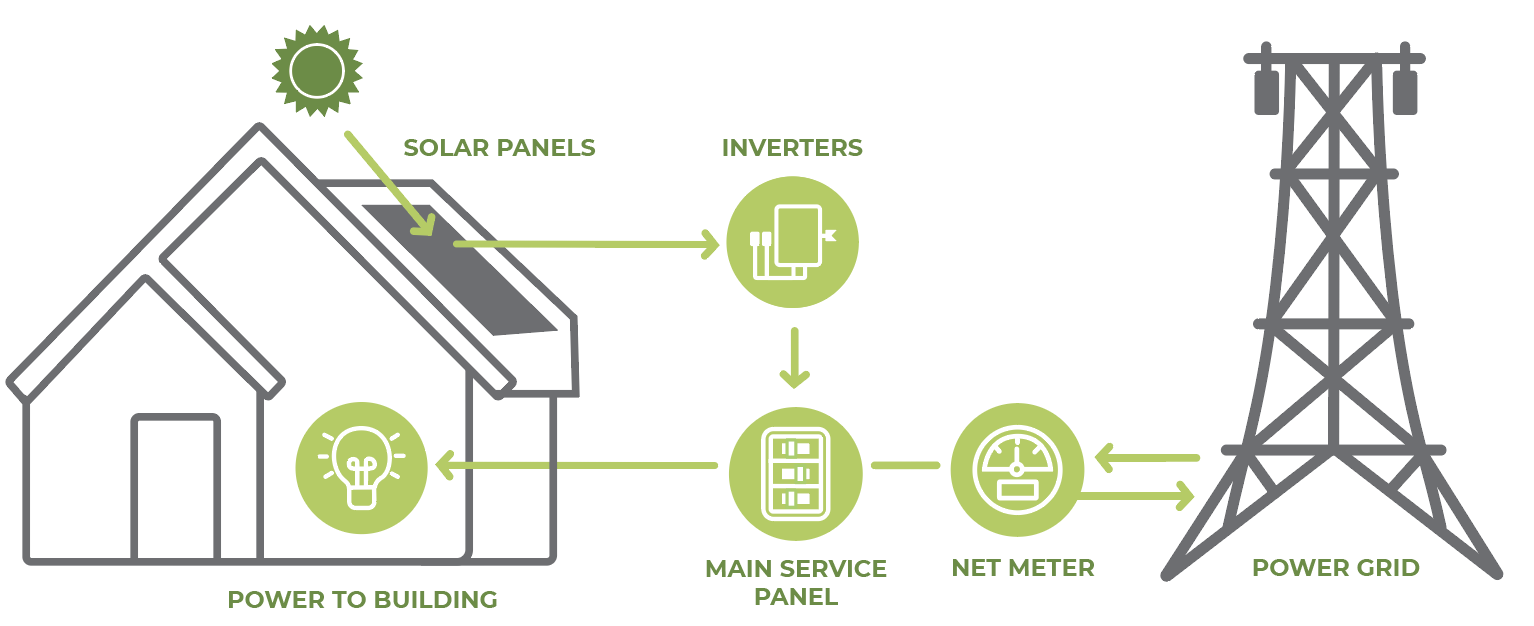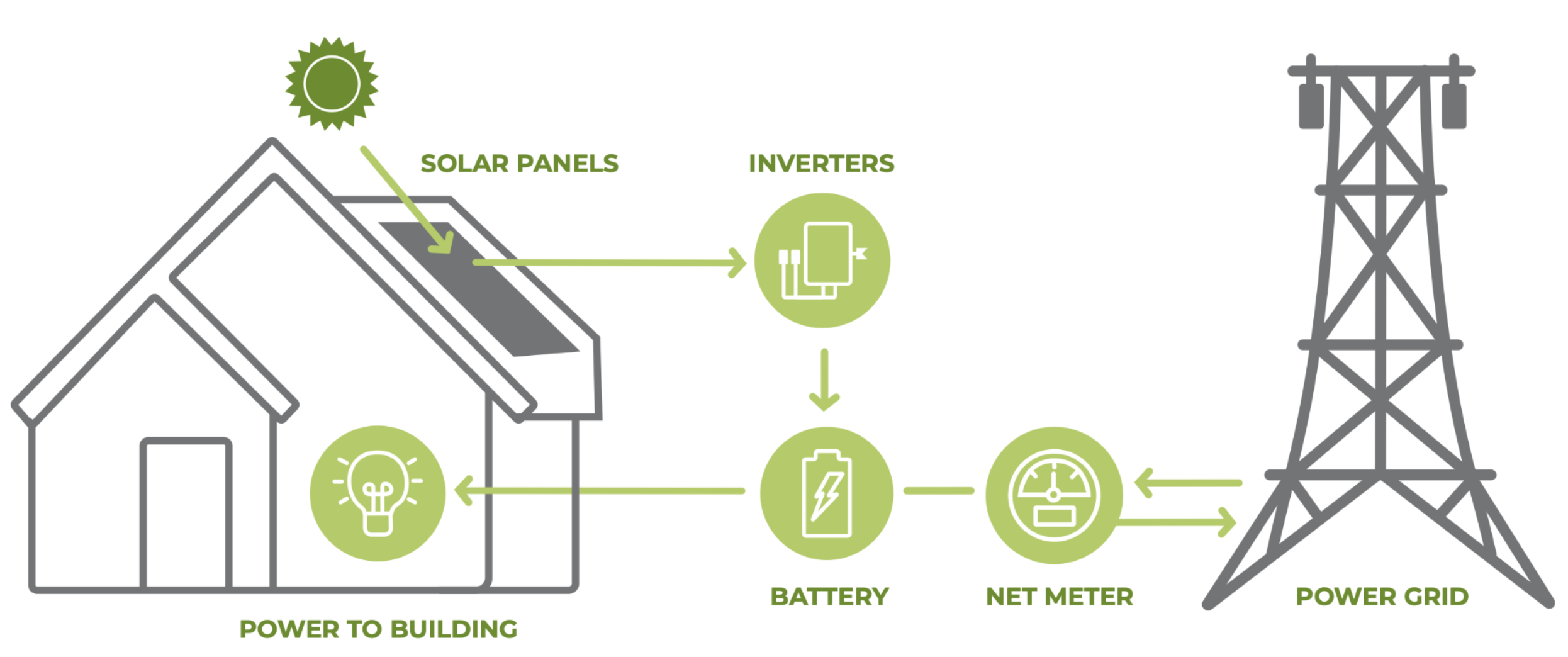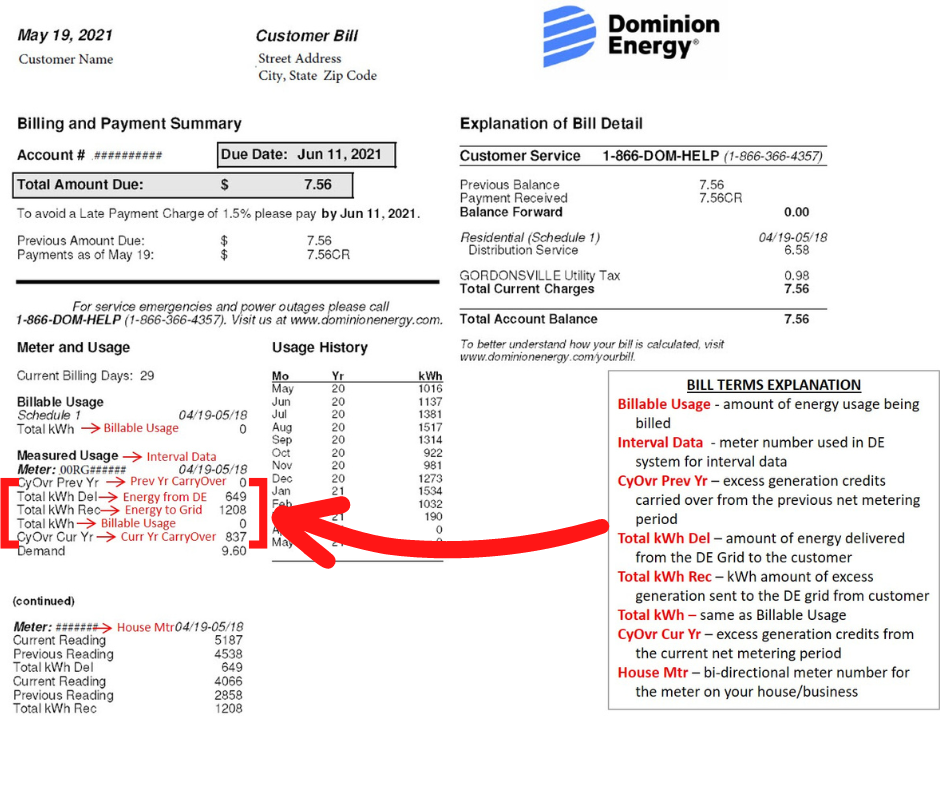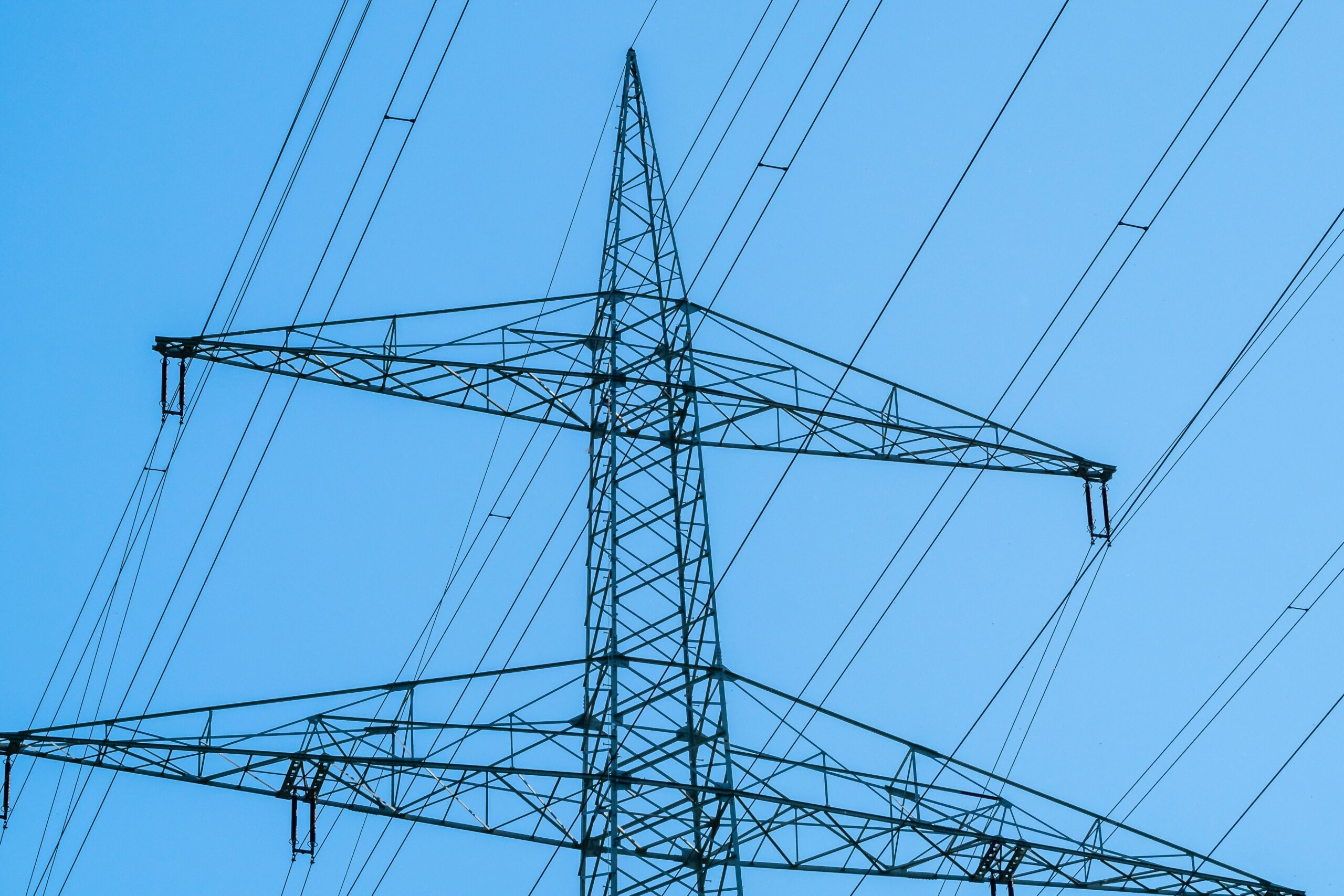When you switch to solar energy, your Dominion utility bill will change because you will be participating in net metering. Wondering what net metering actually is, and what your utility bill will look like as a result? Read on!
What is net metering?
Net metering is a solar incentive that allows you to send your excess solar production back to the grid and get a 1-for-1 credit for that energy on your utility bill. It’s a concept similar to receiving a store credit when you return something at Target. In this instance, though, the utility will add up your net credits each month, and whenever you don’t produce enough energy to cover your electricity needs (in the winter months, for example), Dominion will add the credits back to your bill. Let’s break that down in detail…
A visual look at net metering
As you can see in the image below, the process starts when the sun’s rays hit your solar panels on a sunny day. Those electrons are converted to electricity, which can then power your home. You can see from the green arrows that the electricity can travel both ways — from the house to the grid and from the grid to the house. If you’re not producing enough energy for your needs, you can draw electricity from the grid. If you’re producing more than you need, you can send the extra back for credit.
Solar Only Net Metering

Net Metering With Battery

If you have a household battery installed with your solar array, the energy will power the home first; then, the remaining energy will make sure the battery is full. Once the battery is full, any excess energy not needed by the home will be sent back to the grid via net metering.
Your New Dominion Bi-Directional Net Meter
After installation and inspection, Dominion will install a net meter on your home soon after your solar installation is complete. The net meter will measure how much energy you have used vs. how much you produced, and Dominion will keep track of the credits.
Your Dominion net metering bill
Here’s how net metering looks on an actual Dominion bill example. You’ll see that the amounts are measured in Kilowatt Hours (kWh), which is a description of energy used over time. You can learn more about the measurement of kWh here.

You can see next to the red brackets the Total kWh Del & Rec, and the CyOverCurYr. It’s important to note that these represent your energy use, excess sent to the grid, and net difference from Dominion’s perspective–
- Total kWh Delivered means how much energy they have delivered to you from the grid.
- Total kWh Received is how much power they’ve received from your solar production.
- The Carryover Current Year is the difference between the two that you have in credits.
Three more important notes about net metering:
👉 The credits carry over for two years. Any credits not used after a two-year period disappear. If your system is sized right, this shouldn’t be a big problem, but if you do have excess credits you are going to lose, we usually advise people to throw a big party :) Or buy an EV!
👉 We wish it were the other way around, but net metering is a privilege, not a right. In California right now, solar advocates are in a battle to preserve net metering, and it’s been a fight in many other states as well. You can read more about California’s net metering changes here. So take advantage of this 1-to-1 full credit incentive while you can. Anyone whose solar system comes online while net metering is in effect will be grandfathered into the program. It’s just one more reason to take action now on your solar project.
👉 Net metering is just one of many solar incentives available. Additional potential incentives include Solar Renewable Energy Credits (known as SRECs, and totally separate from net metering credits); the 30% federal solar tax credit; and other local incentives. Check out our solar incentives page to learn more.
Get in touch today!
Give us a call at 703-249-6594 or click below to talk to one of our solar consultants. They’d love to answer your questions about net metering and other incentives!




